Program Special Events Marketing Hotel/Transportation Registration Competitions
54th National Conference Program
Pre-Conference Workshops • Plenary Sessions • Breakout Sessions •
Publisher Showcase Sessions • Poster Paper Sessions •
Morning Coffee & Conversation Sessions
SCHEDULE
Thurs, July 7 l Fri, July 8 l Sat, July 9 l Sun, July 10 l Mon, July 11 l Tues, July 12
l Printable Version ![]() *Program schedule subject to change as needed
*Program schedule subject to change as needed
PRE-CONFERENCE WORKSHOPS (additional ticket purchase required to attend)
On Stage at Lyric Opera of Chicago
Lyric Opera Staff
Friday, July 8 • 9:00 a.m. to 1:00 p.m.
 Join us for a look inside the many facets of the Lyric Opera of Chicago. Tour the opera house, learn about the mission and structure of the Ryan Opera Center, one of the country’s premier young artist training programs, and visit with some of the artists. Discuss how casting has changed with the addition of classic music theater productions to the repertory. Learn about the Lyric’s community engagement efforts and take home ideas that you can scale to your local setting. This workshop will be held off-site at the Lyric Opera of Chicago, and attendees will need to plan enough time to leave the hotel and arrive at 9:00 am. Directions: The Civic Opera House is located at 20 N. Wacker Drive, Chicago. Please use the stage door entrance at the corner of Wacker and Washington.
Join us for a look inside the many facets of the Lyric Opera of Chicago. Tour the opera house, learn about the mission and structure of the Ryan Opera Center, one of the country’s premier young artist training programs, and visit with some of the artists. Discuss how casting has changed with the addition of classic music theater productions to the repertory. Learn about the Lyric’s community engagement efforts and take home ideas that you can scale to your local setting. This workshop will be held off-site at the Lyric Opera of Chicago, and attendees will need to plan enough time to leave the hotel and arrive at 9:00 am. Directions: The Civic Opera House is located at 20 N. Wacker Drive, Chicago. Please use the stage door entrance at the corner of Wacker and Washington.
Pop/Rock Vocalism for the Music Theater Singer
Sheri Sanders, Melissa Cross, with Mary Saunders-Barton
Friday, July 8 • 9:00 a.m. to 1:00 p.m.
Get in the trenches with this team of presenters and increase your skill in finding those perfect audition cuts for pop/rock auditions and health approaches to singing rock "in the key of screaming." Watch the process as singers discover the right cuts for them, and take home new skills and processes that will serve your students.



The Aging Voice
Brenda Smith, Michael Johns, Aaron Johnson, Peggy Baroody and Amy Nabors
Friday, July 8 • 9:00 a.m. to 1:00 p.m.
This all-star panel of experts on the aging voice will help you with your own aging voice and your teaching of those who want to remain active singers in solo or choral settings as they age. You will leave with practical and applicable knowledge for your setting as well as hear about the latest research available on the aging voice.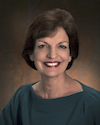



The Training of the Singer and the Teacher – Charting a Course for the Future
Allen Henderson, Scott McCoy, Claudia Friedlander and Brett Scott
Friday, July 8 • 9:00 a.m. to 1:00 p.m.
In the 1950s, a program instituted by NATS was later influential in the development of the DMA degrees in voice and voice pedagogy. Several generations later, we are at another juncture with many questions being asked about the training of today’s singers and teachers of singing. One of the most important things we can do today is shape the education of tomorrow’s teachers. In preparation for this workshop, attendees will be presented several position papers to read and prepare in advance so that our work together will be most fruitful.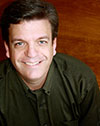
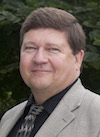


PLENARY SESSIONS
Master Class
Stephen Smith
Friday, July 8 • 3:30 p.m.
 Tired of clinicians who dance around technical issues in master class? We hear you. Noted pedagogue Stephen Smith will work with an undergraduate, graduate and young professional singer and specifically address technical issues at various stages of vocal development. Smith is a professor of music at Northwestern University and maintains a private studio that includes elite singers.
Tired of clinicians who dance around technical issues in master class? We hear you. Noted pedagogue Stephen Smith will work with an undergraduate, graduate and young professional singer and specifically address technical issues at various stages of vocal development. Smith is a professor of music at Northwestern University and maintains a private studio that includes elite singers.
Master Class/Lecture and Q&A
Renée Fleming
Master Class - Saturday, July 9 • 10:30 a.m.
Lecture and Q&A - Saturday, July 9 • 2:00 p.m.
 One of the most beloved and celebrated musicians and personalities of our time, world-renowned soprano and musical ambassador Renée Fleming captivates audiences with her sumptous voice, consummate artistry and compelling stage presence. At a White House ceremony in 2013, the President awarded her the National Medal of Arts, America's highest honor for an individual artist. Known as "the people's diva" and winner of the 2013 Grammy for Best Classical Vocal Solo, she continues to grace the world's greatest opera stages and concert halls, now extending her reach to include other musical forms and media.
One of the most beloved and celebrated musicians and personalities of our time, world-renowned soprano and musical ambassador Renée Fleming captivates audiences with her sumptous voice, consummate artistry and compelling stage presence. At a White House ceremony in 2013, the President awarded her the National Medal of Arts, America's highest honor for an individual artist. Known as "the people's diva" and winner of the 2013 Grammy for Best Classical Vocal Solo, she continues to grace the world's greatest opera stages and concert halls, now extending her reach to include other musical forms and media.
Featured Artist Recital
 Melissa Wimbish
Melissa Wimbish
Saturday, July 9 • 3:30 p.m. - 4:45 p.m.
Praised by The New York Times for her "stylish singing" and by The Boulder Daily Camera as "simply incredible ... the highlight of the entire evening," Melissa Wimbish is consistently recognized for her artistry, technical prowess and captivating stage presence. Recently appearing as Barbarina in Le nozze di Figaro with Lyric Opera Baltimore, the young soprano did not go unnoticed with Opera News noting her "promising soprano" while The Baltimore Sun praised her "bright voice" and "knack for animating phrases." She was the 2014 NATS Artist Awards Winner.
Featured Artist Recital (NMTC Intermission Concert)
 Michael Maliakel
Michael Maliakel
Saturday, July 9 • 9:30 p.m. (time approximate)
Baritone Michael Maliakel is a New York-based singer-actor who enjoys a diverse career in musical theater, opera, and sacred music. A native of New Jersey, Michael received his earliest vocal training as a treble in the American Boychoir and did his undergraduate studies at Georgetown University and the Peabody Institute of Music. Michael’s musical theater credits include Roger in A New Brain, Sky Masterson in Guys and Dolls, and Curtis Ricks in the world premier of Will the Circle Be Unbroken?. On the operatic stage, Michael recently sang the title role in Mozart’s Le nozze di Figaro. Michael’s recent oratorio performances have included the baritone solos in Handel’s Messiah, Vaughan Williams' Five Mystical Songs, Bach’s Christmas Oratorio, and Fauré’s Requiem.
The 2014 First Prize winner in the NATS National Musical Theater Competition, Michael recently won the Gold Medal at the 2016 American Traditions Competition. He was also awarded Third Prize at the International Lotte Lenya Competition, an Encouragement Grant from the Liederkranz/Gerda Lissner Lieder-Song Competition, and was a finalist in the Philadelphia Orchestra’s Alfred M. Greenfield Competition.
Upcoming engagements include a debut as soloist with the Savannah Philharmonic, the baritone solo in Brahms’ Ein deutches Requiem with the St. George’s Choral Society, and workshops of a new Broadway-bound musical, Moonsoon Wedding. In addition to his solo pursuits, Michael enjoys teaching voice privately and performing regularly with some of New York City’s top vocal ensembles, including Trident, Musica Sacra, Voices of Ascension, and Musica Viva of NY.
Master Class with Warren Jones
Warren Jones
Sunday, July 10 • 10:30 a.m - Noon
 Warren Jones is one of the field’s leading collaborative pianists, and his eclectic career has taken him to virtually every corner of the musical world. The Robert and Mercedes Eichholz Principal Pianist for the exciting Santa Barbara-based chamber music group Camerata Pacifica, he performs with some of today’s best-known artists. Jones’ discography comprises more than 30 recordings on every major label in a wide range of repertory, and his conducting repertory is similarly varied.
Warren Jones is one of the field’s leading collaborative pianists, and his eclectic career has taken him to virtually every corner of the musical world. The Robert and Mercedes Eichholz Principal Pianist for the exciting Santa Barbara-based chamber music group Camerata Pacifica, he performs with some of today’s best-known artists. Jones’ discography comprises more than 30 recordings on every major label in a wide range of repertory, and his conducting repertory is similarly varied.
Choral Singing From the Conductor's Podium
Donald Nally, Grant Gershon and Mary Hopper
Sunday, July 10 • 2:00 p.m - 3:30 p.m.
Distinguished choral conductors join us to discuss their perspectives about singers and singing in choirs, covering a broad range of topics from the young undergraduate to professional and operatic ensembles. They will discuss the role of choirs within curriculum, vocal concerns and expectations, and much more. This candid and informative session will help us view singers and singing from the choral conductor's perspective. 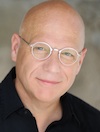

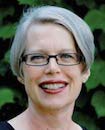
Voice Science Session - Session I
Dr. Robert Bastian
Monday, July 11 • 10:30 a.m. - 12:00 p.m.
 An internationally recognized authority in the treatment of voice, airway, swallowing and coughing disorders, Dr. Robert Bastian has a passion for education and has devoted recent years to making educational media related to the voice freely available to patients and the broader community. He has also developed self-monitoring tools for voice users to assist them in their daily voice use.
An internationally recognized authority in the treatment of voice, airway, swallowing and coughing disorders, Dr. Robert Bastian has a passion for education and has devoted recent years to making educational media related to the voice freely available to patients and the broader community. He has also developed self-monitoring tools for voice users to assist them in their daily voice use.
Voice Science Session - Session II
Dr. Robert Bastian
Monday, July 11 • 2:00 p.m. - 3:30 p.m.
 An internationally recognized authority in the treatment of voice, airway, swallowing and coughing disorders, Dr. Robert Bastian has a passion for education and has devoted recent years to making educational media related to the voice freely available to patients and the broader community. He has also developed self-monitoring tools for voice users to assist them in their daily voice use.
An internationally recognized authority in the treatment of voice, airway, swallowing and coughing disorders, Dr. Robert Bastian has a passion for education and has devoted recent years to making educational media related to the voice freely available to patients and the broader community. He has also developed self-monitoring tools for voice users to assist them in their daily voice use.
BREAKOUT SESSIONS
Saturday, July 9
7:00 a.m. - 8:00 a.m. – Empowered Performance: Using Yoga to Transform Singer's Experiences on Stage (Chicago Ballroom ABC – 5th Floor); Presenter: Sarah Whitten
7:00 a.m. – 8:00 a.m. – Good Morning Kick Start (Marriott Ballroom – 4th Floor)
Presenter: Elizabeth Rotoff
9:00 a.m. - 10:00 a.m.
Do We Hallucinate Vowels? Rethinking How We Teach Formants, with Practical Implications for the Female Secondo Passaggio (Chicago Ballroom ABC – 5th Floor)
Presenter: Ian Howell
Why Would I Want to Occlude Anything? The When and How of Semi-Occluded Vocal Tract Exercises (Chicago Ballroom E-H – 5th Floor)
Presenter: Lynn Maxfield
Stepping on Stage Panel: Casting in the East, Midwest, and West (Grand Ballroom Salon I – 7th Floor)
Presenters: Bob Garrett, Lindsay Levine, Dawn Gray, Ryan Saab
Making our Garden Grow: Cultivating 21st-Century Art Song (Marriott Ballroom – 4th Floor)
Presenter: Julia Bentley
You’ve Got a Business, Teaching Singing. Entrepreneurialism and the Contemporary Independent Voice Studio (Avenue Ballroom – 4th Floor)
Presenter: Davin Youngs
5:00 p.m. - 6:00 p.m.
Let's Get Moving! Body Mapping Activities for School and Studio ( Chicago Ballroom ABC – 5th Floor)
Presenters: MaryJean Allen, Melissa Malde and Kurt-Alexander Zeller
Vocal Health on Broadway & Beyond (Chicago Ballroom E – H - 5th Floor)
Presenter: David Sisco
Assessment Tools for Applied Voice Teachers (Marriott Ballroom - 4th Floor)
Presenters: Corinne Ness, Daniel Hunter-Holly
NATS Talks (Avenue Ballroom - 4th Floor)
Presenters: Liana Valente, Chris Thompson, Andrew White, Jay White
Collaborative Coaching (Grand Ballroom Salon I - 7th Floor)
Presenter: Warren Jones
Sunday, July 10
7:00 a.m. - 8:00 a.m. – Empowered Performance: Using Yoga to Transform Singer's Experiences on Stage (Chicago Ballroom ABC – 5th Floor)
Presenter: Sarah Whitten
7:00 a.m. – 8:00 a.m. – Good Morning Kick Start (Marriott Ballroom – 4th Floor)
Presenter: Elizabeth Rotoff
9:00 a.m. - 10:00 a.m. - Processing New Repertoire for Permanence (Chicago Ballroom E-H - 5th Floor)
Presenter: Warren Jones
Musicianship for the Commercial Vocalist (Chicago Ballroom ABC - 5th Floor)
Presenter: Kathryn Paradise
Voice Care Fact or Fiction: Hydration, Lubrication, Herbs, Supplements, and Medications (Grand Ballroom Salon I - 7th Floor)
Presenter: Stephanie Fort
What Do You Do for an Encore After the Opera is Over? Reinventing the Female Classical Voice after Menopause (Marriott Ballroom - 4th Floor)
Presenter: Jennifer Trost, Mary Saunders-Barton
NATS Books (Avenue Ballroom - 4th Floor)
Presenters: Matthew Hoch
4:00 p.m. - 5:00 p.m.
The Ladies of Lyric and Song: Female Composers and Lyricists of the American Musical Theatre (Chicago Ballroom ABC)
Presenter: Erin Guinup
What is Intonation? Using Technology to Understand Our Perception (Chicago Ballroom E-H -5th Floor)
Presenters: Deirdre Michael, Marina Gilman
Kinesthesia of Singing: Science in Action (Grand Ballroom Salon I - 7th Floor)
Presenter: Karen Bauer
Sharpening the Saw: High – and Low – Tech Wellness Strategies for Singers (Marriott Ballroom - 4th Floor)
Presenter: Kristine Hurst-Wajszczuk
The Art of Being a Great Adjudicator (Avenue Ballroom - 4th Floor)
Presenter: Allen Henderson
Monday, July 11
9:00 a.m. - 10:00 a.m.
Use of Vocal Function Exercises for Improved Resonance, Phonation, and Breath Management in Singers (Chicago Ballroom ABC - 5th Floor)
Presenter: Kathleen Wilson
The Brain, Music, and Optimal Performance (Chicago Ballroom E-H - 5th Floor)
Presenter: Karen Leigh-Post
Bringing the Song To Life: It's a Matter of Style (Grand Ballroom Salon I - 7th Floor)
Presenter: Edrie Means Weekly
Habilitating the Injured Singer: A Systematic Approach (Chicago Ballroom ABC - 5th Floor)
Presenter: Kari Ragan
American Academy of Teachers of Singing Session (Avenue Ballroom - 4th Floor)
Presenters: Martha Randall, Karen Brunssen, Mary Saunders-Barton, Lorraine Manz and Richard Sjoerdsma
4:00 p.m. - 5:00 p.m.
Comedy in Song: Humorous Art-Songs in English (Chicago Ballroom ABC - 5th Floor)
Presenters: Loraine Sims, Maria Curry
Singing Seniors: Restoring the Aging Singer to Vocal Success! (Grand Ballroom Salon I - 7th Floor)
Presenters: Deanna McBroom, Lucinda Halstead
Rocking The Traditional Singing Boat: How to make the transition from Classical to Contemporary Musical Theatre and Beyond (Marriott Ballroom - 4th Floor)
Presenter: Melissa Foster
Big is Beautiful: Providing pedagogical support for the Large Voices in our Studios (Avenue Ballroom - 4th Floor)
Presenters: Kristen Wunderlich, Tanya Kruse Ruck
Expanding Your Independent Studio: The Challenges and Rewards of a Multi-Teacher Studio (Denver/Houston/Kansas City - 5th Floor)
Presenters: Cynthia Vaughn, Sharon Szymanski
PUBLISHER SHOWCASE SESSIONS
Publisher Showcases are either 30-minute or 45-minute presentations by publishers and companies who wish to introduce attendees to their newest publications, products or services. This will be an opportunity for you to get to know more about a specific product or publication you are interested in and saw in the exhibition hall.
Saturday, July 9
12:10 p.m. – 12:55 p.m. – Exhibitor Publishers Showcase (Grand Ballroom Salon I – 7th Floor)
Presented by Music Together LLC
1:10 p.m. – 1:55 p.m. – Exhibitor Publishers Showcase (Chicago Ballroom – 5th Floor)
Presented by Inside View Press
Sunday, July 10
12:10 p.m. -12:55 p.m. – Exhibitor Publishers Showcase (Chicago Ballroom D-H – 5th Floor)
Presented by The Royal Conservatory Music Development Program
1:10 p.m. - 1:55 p.m. – Exhibitor Publishers Showcase (Chicago Ballroom D-H – 5th FL)
Presented by Hal Leonard Corporation
5:15 p.m. – 6:30 p.m. – Exhibitor Publishers Showcase (Chicago Ballroom E-H - 5th Floor)
Presented by ECS Publishing Group
Monday, July 11
12:10 p.m. – 12:55 p.m. – Exhibitor Publishers Showcase (Grand Ballroom Salon I - 7th Floor)
Presented by the Independent Music Publishers Cooperative, in association with Graphite Publishing
1:10 p.m. - 1:55 p.m. – Exhibitor Publishers Showcase (Grand Ballroom Salon I - 7th Floor)
Presented by Virtually Vocal
POSTER PAPER SESSIONS
NATS Members and friends will present their topics each day during the conference. Attendees will be able to visit each table and chat with paper presenters during the lunch break from Noon - 2:00 p.m.
Poster Papers Session I • Saturday, July 9, 2016
Location: Grand Ballroom Salon II & III – 7th Floor
Monsieur Sans-Souci: Francis Poulenc’s Songs for Children
Presenter: Keith E. Clifton, Central Michigan University
Synopsis: Francis Poulenc’s Quatre chansons pour enfants (Four songs for children) are among his least-known but most charming songs. This poster-paper will consider the role of the set in Poulenc’s song output, his relationship with poet Jean Nohain, and references to popular French song styles such as the chanson. Finally, the poster will include recommended recordings and suggestions for using the set in both teaching and performance.
A Study of Singers' Perspectives on Musicianship and Pedagogical Approaches in Training
Presenter: Amanda DeMaris, Arizona State University
Synopsis: This poster summarizes a survey of 101 singers which sought to better understand singers’ experiences, training, and perspectives in the area of musicianship. The participating singers reported general satisfaction with their abilities to read and execute a musical score, but reported varying skill levels in areas such as sight reading, analysis, and piano. Piano was reported to be the weakest area (yet the most used tool) when learning new repertoire.
Results of the 2014 Singing Through Menopause Survey
Presenter: Martha Elliott, Princeton University
Synopsis: More female singers experience changes to their voices as they go through menopause than earlier reported. Find out what practices and treatments help singers continue performing through and after this transition period. Attendees at the 2014 NATS National Conference in Boston will remember participating in this international online survey that collected over 120 responses. Please come see the results!
Navigating the Voice Care Team: A Study for the Pre-Professional and Professional Singer
Presenter: Sarah Folsom
Synopsis: While great progress has been made in creating optimal models of the voice team care and collaboration for elite voice users, the current absence of a certification in singing voice habilitation/rehabilitation for voice professionals can make it difficult for pre-professional and professional singers suffering from vocal injuries to make informed choices about their care. The current qualitative, interview-based research study sought to address this deficiency by surveying the self-perceptions and self-reported methods of a small population of singing voice teachers, speech language pathologists, and singing voice specialists who demonstrated ample experience in the habilitation and/or rehabilitation of pre-professional and professional singing voices. Through the discussion of various topics ranging from effective pedagogical and therapeutic modalities to proposed qualifications for work with injured singing voices, common themes emerge and offer insight to voice professionals as well as singers seeking specialized voice care.
Endometriosis and Implications for Singers
Presenter: Tracelyn Gesteland, University of South Dakota
Synopsis: Endometriosis may impact the voice to varying degrees depending on the severity of the disease. Singers who receive this diagnosis must work carefully with their doctors in order to achieve the best possible outcome for both their general and vocal health.
Agathe Backer-Grøndahl: The Clara Schumann of Norway
Presenter: Anna C. Hersey, Eastern New Mexico University
Synopsis: Agathe Backer-Grøndahl (1847-1907) was a contemporary and close friend of Edvard Grieg, and was well connected with some of the most important European composers and performers of her time. As an active pianist and composer herself, both in her homeland and abroad, Backer-Grøndahl could rightly be called the Clara Schumann of Norway. In addition to composing many piano pieces, she wrote around 250 songs in a Romantic style, with texts in Norwegian, Danish, German, and Swedish.
Training Fatigue Resistance in Singers: Scaffolding a Systematic Pedagogy
Presenter: Matthew Hoch, Auburn University
Synopsis: While a systematic pedagogy for skill acquisition (SA) has long been established in the voice pedagogy literature, an equivalent systematic pedagogy for fatigue resistance (FR) training has yet to emerge. This presentation advocates that such an approach is possible through the application of specific exercise science principles as well as quantifying vocal dose via two variables: specific singing tasks and temporal measurements. The presentation will include strategies for structuring a timed vocal warmup that incorporates FR principles. The author believes that these concepts offer an important “missing link” for voice pedagogues, ones that provide a scientific basis to “train up” singers to perform specific tasks while simultaneously preventing injury by incorporating fatigue-resistance principles alongside traditional pedagogical concepts based on skill acquisition.
Your Unique Voice: A System for Vocal Quality Assessment in Commercial Singers
Presenter: Kelly Hoppenjans
Synopsis: Vocal classification and the use of appropriate vocal models can foster great progress for vocal students of any style. However, a structured system classifying vocal qualities beyond range only exists for classical singers using the Fach system and not for musical theatre or commercial singers. This project explores possible methods and tools for vocal quality assessment in commercial singers, as well as examines the effects these may have on the singers' technical improvements.
Evidence-Based Singing: Incorporating Research and Technology in the Applied Studio
Presenter: Kimberly Gratland James, University of Montana
Synopsis: This poster presentation proposes a paradigm shift in applied music teaching and learning, drawing upon the principles of Evidence-Based Medicine (EBM) which has been defined as “…the conscientious, explicit and judicious use of current best evidence in making decisions about the care of individual patients.” (DL Sackett et al, 1996). The author of this presentation advocates the use of a similar model, Evidence-Based Singing (EBS), which depends on a collaborative process between performers, teachers, and researchers. This presentation seeks to introduce this model, shed light on the power relationships between teachers and their singers, discuss knowledge gaps that can occur for teachers of singers, and propose how teachers and singers can apply evidence-based principles. Additional components of the poster include: challenges/complications for implementation of EBS, potential applications of EBS in the applied studio, and Shared Decision Making.
Exploring Nia for Singers
Presenter: Grace Kolbo, University of Nebraska at Omaha
Synopsis: Nia for Singers is the first formal study to explore the connection between the Nia Technique and vocalists. Nia is a fusion fitness program that encourages singers to become aware of their mind and body through the teachings of the martial arts, dance arts, and healing arts.
Contemporary Collaborations: New Music Projects for Voice Students
Presenters: Jill Terhaar Lewis, Charleston Southern University and Yiorgos Vassilandonakis, College of Charleston
Synopsis: Working with a composer and performing the premiere of a new music composition can be one of the most educational and rewarding experiences for a musician. Taking a concept from a germinal idea to the page and ultimately to the stage creates a wealth of learning opportunities for students, but this type of experience is not typically achieved at the undergraduate level, particularly for voice students. Contemporary Collaborations is a project developed between two universities in Charleston, SC: Charleston Southern University and the College of Charleston; student vocalists from CSU work with student composers from C of C to create new chamber music compositions using the poetry of students from both universities.
The Childrens’ Songs of Olga de Blanck and Gisella Hernandez: Practical Considerations for Their Use in Teaching Voice to Children
Presenter: Elizabeth Blanton Momand, University of Arkansas – Fort Smith
Synopsis: The research presented in this poster examines the lives and music of Cuban composers and music educators Olga de Blanck and Gisela Hernandez. An overview of their entire body of work is provided as well as special consideration for their children’s songs, and practical applications for incorporating them in our teaching studios.
The Mexican Art Song Project
Presenter: Cecilia Montemayor, Escuela de Canto y Piano de Monterrey-Mexico
Synopsis: With the three major periods of musical development in Mexican musical history as a framework, the author will give a view of the origins and development of the Mexican Art Song and how it has been influenced by cultural, social and political factors. The poster will also discuss the author’s last book, a critical anthology of songs by composer José Hernández Gama that includes comments on the songs and poets, as well as vocal exercises to prepare each of the songs from easy to advanced, helping the songs to be used as a progressive method of vocal teaching in the Spanish language.
Sing Bossa Nova: A Guide to the Performance of the Brazilian Contemporary Commercial Song
Presenter: Luciano Simoes Silva, Federal University of Latin American Integration (Brazil)
Synopsis: This paper will focus on the voice pedagogy, technique and interpretation of Brazilian urban songs since the advent of Bossa Nova. Also, a comparison will be provided between Brazilian CCM and American CCM, which will help the reader to be well informed about the similarities and differences between the two.
Vocal Health and Repertoire for the Dramatic Mezzo-Soprano: A Suggested Course of Study
Presenter: Bonnie Von Hoff, Georgia College & State University
Synopsis: The presentation is a curriculum guide that brings together the fields of vocal pedagogy and performance, focusing on repertoire for the Dramatic Mezzo-Soprano, ages 18-30. This suggested course of study emphasizes proper vocal technique and also offers suggestions gleaned from interviews with well-known mezzo-sopranos Mignon Dunn and Dolora Zajick concerning their opinions regarding repertoire, vocal health, and appropriate song and aria assignments for the Dramatic Mezzo-Soprano. Key outcomes and implications include that the Dramatic Mezzo-Soprano must take the time to develop her voice before singing the bigger arias of the standard repertoire such as those from the operas of Verdi and Wagner, and this can be done through the study of art song.
Preparing the Pedagogue! Steps to Building New Pedagogy Degree Programs
Presenter: Joyce Hall Wolf, Eastern Kentucky University
Synopsis: This poster presentation shares the successful path to building two vocal degrees: a Bachelor of Music in Pedagogy and Performance and a Master of Music in Pedagogy and Performance. These two degrees have been developed, approved, and will be offered beginning Fall 2016 at the presenter's university. The goal of establishing a pedagogy program is to provide well-trained graduates who can fill the need for teachers, not only on the collegiate level, but also on any level and situation, providing a positive impact in the musical culture of the local community and beyond.
Poster Papers Session II • Sunday, July 10
Location: Grand Ballroom Salon II & III – 7th Floor
Teaching Singers to "Be": Cultivating Mindfulness in the Voice Studio
Presenter: Elizabeth Packard Arnold, University of Kentucky
Synopsis: The purpose of this poster presentation is to discuss the tenets of mindfulness outlined in Jon Kabat-Zinn’s book,Full Catastrophe Living, (non-judging, patience, beginner’s mind, trust, non-striving, acceptance, and letting go), in relationship to their use in the voice studio and to also provide insight to teachers on how to implement these principles in student lessons. Furthermore, this presentation will review a course designed specifically for singers by Anne-Marie Czajkowski and Alinka Greasley, two professors at the University of Leeds, that includes a curriculum and guided meditations based on the eight-week Mindfulness Based Stress Reduction model.
Unabashedly Tonal: The Art Songs of Tom Cipullo
Presenter: Elizabeth Ann Benson, Auburn University
Synopsis: Tom Cipullo is a significant contemporary composer of American Art Song, with over 100 published songs. His music is complex and challenging, yet firmly rooted in the 20th-century revival of Romanticism. This study identifies stylistic trademarks within Cipullo’s Art Song oeuvre, including treatment of harmony, dissonance, rubato, vocal style, rhythmic complexity, musical quotes, humor, and the relationship between piano and voice. Further repertoire guidance will be provided: Level of difficulty, song recommendations by voice type, discography, and publication information.
Shifting Gears: Formant Tuning Strategies of Elite Operatic Baritones
Presenters: Troy Castle, Bob Jones University; David Meyer, Shenandoah Conservatory; Daniel Ihasz, SUNY Fredonia
Synopsis: This poster presents results obtained from analysis of a four-note passage in Gounod’s “Avant de quitter ces lieux” as performed by 65 elite baritones in 101 commercially available recordings. F1 and F2 frequency data are integrated with the Peterson and Barney vowel chart to display the singers’ vowel modification strategies in the passaggio. The spectrum generated by a synthesized reproduction of the “model” strategy (using mean data) is also displayed.
How Did Your Voice Teacher Determine Your Grade? How Do You Determine Your Students' Grades?
Presenter: Ruth Ellis, University of Utah, Snow College
Synopsis: The way higher education vocal instructors communicate grading expectations to their students has evolved a great deal over the past few decades. This original research shows those trends and where we are today. Come see how trendy you are!
Bridging Vocal Technique and Creative Expression One Note at a Time - Improvisation in the Voice Studio
Presenters: Irene Feher, McGill University, Concordia University; Elaine Lemieux, Lycée Français de Chicago
Synopsis: Integrating improvisation into today’s music curricula provides a stronger basis for educating musicians than the prevailing model of training only in the interpretation of existing works (Transforming Music Study from its Foundations: A Manifesto for Progressive Change in the Undergraduate Preparation for Music Majors – CMS Website). The presenters support this point by outlining why and how they adapt and use improvisation techniques developed by Music for People (David Darling et al.) in the voice studio.
Transforming the Applied Voice Lesson Curriculum: The Pedagogical Advantages of Integrating Art Song Duets, Trios, and Quartets
Presenter: Susan Hochmiller, Sunderman Conservatory of Music, Gettysburg College
Synopsis: Performing duets in applied instrumental lessons is a common occurrence, but it rarely happens in the applied voice lesson curriculum. This poster presentation will demonstrate how the integration of duet, trio, and quartet art song repertoire into the applied voice lesson curriculum can accelerate students' technical, artistic, and collaborative growth through modeling and scaffolding instructional methods. Representative musical examples which examine and illustrate pedagogical opportunities for vocal development will also be provided.
Inside Out and Upside Down: Implementing Flipped Learning in the Undergraduate Vocal Pedagogy Classroom
Presenter: Kelly Holst, Oklahoma City University
Synopsis: The use of “flipped” learning has grown in popularity and practice since the late nineties. This method is founded on the belief that learning and retention improves when students are actively engaged in higher-order skills during class rather than passively receiving content from the instructor. This poster-paper presentation will focus on the scholarship behind flipped learning and the application of this pedagogical method in the undergraduate vocal pedagogy classroom.
Effects of Hennessy Whole Body Voice on the singing voice: objective data and subjective results – a pilot study
Presenters: Eva C.S. Laskaris, John Nix, Donovan Fogt, Sakiko Oyama, University of Texas at San Antonio
Synopsis: Vocal difficulties can present with bodily tension that inhibits free production of phonation. The authors pilot-tested a 5-week exercise intervention of Hennessy Whole Body Voice (HWBV), a bodywork modality designed specifically for singers. Vocal performance measures, pulmonary capacity, muscular activation of the masseter and sternocleidomastoid (SCM) muscles, and SVHI-10 scores were assessed on collegiate voice majors (N=7) pre-and post-intervention.
Acoustic Differences between Professional and Novice Music Theatre Singers
Presenters: Brian Manternach, University of Utah; Lynn Maxfield, University of Utah
Synopsis: This study considered whether the "belt" and "legit" sounds of professional-level singers would show significant acoustic differences when compared to the belt and legit singing of younger college students. Three acoustic analyses were applied to their singing: the spectral slope of the long term average spectrum (LTAS), the noise to harmonic ratio (NHR), and the dominant harmonic (1st, 2nd, or 3rd). Results appear to indicate that the professional singers in this study were more successful in producing energy in the high harmonics (particularly above 3 kHz) and that all singers associated low spectral slope with belt technique.
Vocal Health Protocols at Undergraduate Music Programs
Presenters: Emily Martin, Bucknell University; Allison Aaron, student, Bucknell University
Synopsis: The purpose of this study was to determine the current availability of proactive strategies and reactive responses in NASM accredited undergraduate liberal arts voice programs in the United States. Informed by the results of this study, a vocal health protocol is being developed at Bucknell University with the hope to guide the development of protocols at individual institutions.
Acoustic Influences on Voice Registration
Presenter: Lynn Maxfield, University of Utah
Synopsis: Highly trained singers know what a registration shift feels like, where in their ranges it is likely to occur, and how to make small adjustments to make it less abrupt. Changing registers while singing can result in a significant timbral shift and, if approached unexpectedly, an abrupt jump in fo. This work demonstrates how acoustic factors may explain the strong relationship between vowel and registration.
The Effect of Core Muscle Engaging Movement and Gestures on Respiratory and Laryngeal Function on Singer Training in a University Studio: A Pilot Study
Presenter: Karl Paoletti Jr.
Synopsis: The purpose of this research project is to measure acoustical changes in student singers’ tone production over a four week time period during which a group of music students were asked to sing and perform a series of specific movements and gestures designed to energize the singer’s production through the engagement of the core muscles. Spectrographic data was used as a tool for quantifying the effectiveness of incorporating a set series of movement and/or gestures while performing a series of singing tasks and a sustained singing passage in the secondo passaggio.
Brazilian Portuguese: a singer’s guide
Presenter: Marcía Porter, Florida State University
Synopsis: The purpose of my research is to create a guide specifically designed to help classical singers learn how to sing in Brazilian Portuguese. Using the International Phonetic Alphabet, the book will provide both a basis for understanding the sounds of the language and the rules for diction. Brazilian Portuguese Diction for Singers will also include brief biographical sketches of a select group of composers whose works reflect the development of the art form, sample song texts along with translations and transliterations, and a brief overview of the history of the language.
The saliency of the “singer” identity and the pursuit of the “ideal” singer as measured by the SIAA (Singer Identity and Attitudes) questionnaire.
Presenters: Katherine Rohrer, School of Music, The Ohio State University; John W. McCarthy, Communication Sciences and Disorders, Ohio University; Jeffrey A. Russell, School of Applied Health Sciences and Wellness, Ohio University; Richard Celestina, School of Music, The Ohio State University
Synopsis: A singer’s instrument is biologically embedded and therefore requires a negotiation between oneself and the embedded mechanism. Understanding how central or “salient” the identity of being a singer is to one’s own identity as a person, as well as one’s feelings, thoughts and beliefs about the “ideal” singer as an identity, may be as critical to determining the impact of the vocal identity and highlight potential risk factors for unhealthy emotional and psychological responses.. A Singer Identity and Attitudes (SIAA) questionnaire was given to a sample of 63 singers (mean age = 22.7 ± 3.4 yrs) participating in a regional NATS event.
Head Over Heels (Part 2): The Effects of Three Heel Heights, Pitch, and Vowel on the LTAS and dB SPL of Female Singers
Presenter: Amelia A. Rollings, Western Kentucky University
Synopsis: The first portion of this study examined the effects of heel height, pitch, and vowel on postural measures of singer head position and jaw opening. The purpose of the second portion of this larger study was to determine the effects, if any, of (a) 3 simulated heel height conditions [0.0 in., 1.5 in., and 3.0 in.], (b) 3 pitch conditions [A3 (low), A4 (medium), and A5 (high)], and (c) 2 vowel conditions {[ɑ], [i]} on the acoustical measures of female voice majors’ (N = 35) long-term average spectra data (0-10 kHz) and amplitude (dB SPL). Results were discussed in terms of significant findings, applications to voice research and pedagogy, and implications for future research.
Teaching Lucas: A Transgender Student's Vocal Journey from Soprano to Tenor
Presenter: Loraine Sims, Louisiana State University
Synopsis: The research is based on a chronicle of more than a year of voice lessons and voice changes experienced by a female to male (FtM) transgender student after testosterone therapy. The opportunity was unique because the teacher had worked with the student before the hormone therapy and has continued lessons for more than a year following the initial treatment. The synthesized data includes the changes in vocal range, voice quality throughout that range, and vocal registration events.
Enhancing Student Learning Through Reflective Journal Assignments
Presenter: Emery Stephens, Wayne State University, Detroit, MI
Synopsis: As many academic institutions have increased their efforts to assess student learning in the classroom, this poster paper presentation focuses on enhancing student success through reflective journal assignments in voice classes. The use of reflective writing provides an opportunity for ongoing communication between the instructor and student on vocal progress and comprehension of course content for developing healthy singing habits.
MORNING COFFEE & CONVERSATION SESSIONS
Morning Coffee & Conversation with Teachers of Transgender Singers
Presenters: Nancy Bos and Loraine Sims
Saturday, July 9 • 8:00 a.m. - 8:45 a.m.
(Grand Ballroom Salon I - 7th Floor)
Do you teach a transgender singer and feel like you are teaching in a new world all alone? Join us as we share ideas with one another and formulate plans to expand a network of support for teachers of transgender singers. Grab your cup of Joe and join us.
Morning Coffee & Conversation with the NATS Executive Committee
Presenters: Members of the NATS Board of Directors Executive Committee
Sunday, July 10 • 8:00 a.m. - 8:45 a.m.
(Grand Ballroom Salon I - 7th Floor)
Bring your cup of Joe and converse with members of the NATS Board of Directors Executive Committee. Hear some of their thoughts on the directions our association is taking but most of all share with them your ideas and desires about how we can serve our ever growing and diverse constituency. Introduced by Norman Spivey.
Morning Coffee & Conversation with the Performing Arts Medical Association (PAMA) and Athletes and the Arts (AATA)
Presenters: Randy Dick, Deanna McBroom, Lucinda Halstead
Monday, July 11 8:00 a.m. - 8:45 a.m.
(Grand Ballroom Salon I - 7th Floor)
This special conversation will feature members of the national Athletes and the Arts coalition who will talk about ongoing efforts to integrate relevant sports medicine and wellness science into the underserved world of performing artists. The performing artist and the sport athletes face similar and unique challenges as they strive to optimize performance while maintaining physical and mental health. Come learn what these challenges are and how Athletes and the Arts and you can help maintain the health of our performing artists. Both presenters are also members of PAMA and will discuss the relatively new partnership NATS is developing with both sister organizations. Introduced by Deanna McBroom.
